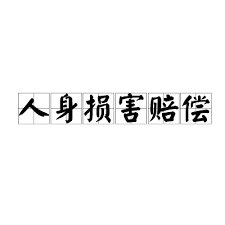

The concept of the subject of personal damage compensation
Personal damage compensation is also known as personal injury compensation, in our legal system, personal damage compensation refers to the citizens because of life, health, body suffered by others, and have the right to ask the perpetrator of the tort (or other compensation obligations) to bear civil compensation obligations, and by the compensation obligations to perform the system. The subject of this kind of compensation is the perpetrator who should fulfill the obligation of compensation, the object of infringement is the citizen's right to life and health, and the content of compensation is the two parts of property loss and spiritual damage caused by the harmful act.
Article 1 of the Supreme People's Court's Interpretation on Several Issues relating to the Application of Law in the Trial of Personal Injury Compensation Cases clarifies that the subject of personal injury compensation is the right holder and the compensation obligor, and clarifies the concept of the right holder and the compensation obligor.
Paragraph 2 of this Article: The term "compensation right holder" as used in this Article refers to the victim who has suffered personal damage directly due to the tort or other causes of injury, the dependant who is under the support obligation of the victim according to law, and the close relatives of the deceased victim.
The third paragraph of this article provides that "compensation obligor" means a natural person, legal person or other organization that shall bear civil liability according to law due to its own or others' tortious acts and other causes of injury.
This judicial interpretation makes clear the title and concept of the compensation subject in the personal injury compensation case for the first time, but in the previous judicial practice, the legal relationship of tort damage compensation is not standardized, and the terminology is often inaccurate and the concept is confused. For example, the title of compensation right holder and compensation obligation in the substantive law, there are infringers, tortfeasors, tortfeasors, perpetrators and victims, victims, death victims and so on. Although each of these expressions has its corresponding scope of application, when people's courts try personal injury compensation cases, the direction of these concepts is often inconsistent with the right and obligation in the legal relationship of damage, which is easy to cause confusion of expression and even affect the correctness of legal thinking and legal reasoning. Therefore, to standardize the legal relationship of personal injury compensation conceptually and unify the title is helpful for us to correctly understand and apply the law in judicial practice and deal with related cases correctly and fairly.
Constitution of liability for personal damage compensation
The composition of the liability for personal injury compensation refers to the conditions that should be met to bear the liability for personal injury. As a typical tort, the constitutive elements of personal damage compensation are the same as those of general torts. Generally speaking, it is considered as "three elements theory", that is, the perpetrator must have three elements of damage fact, causality and subjective fault to bear responsibility, none of which is indispensable. First, there must be a fact of injury, the fact of personal injury here includes the act of injury and the result of injury. Second, there is a causal relationship between the injurious act and the fact of damage. In tort, the causal relationship refers to the objective connection between the illegal act and the result of damage, that is, the specific fact of damage is the inevitable result of the perpetrator's behavior. Only when there is a causal relationship between the two, the actor should bear the corresponding civil liability. Third, the perpetrator is subjectively at fault, and the fault here refers to the perpetrator's negligence or error in the consequences of the act. As long as the perpetrator is subjectively at fault, the size of the fault does not affect the establishment of civil liability. As long as the act of the actor has the above elements, it constitutes the liability for personal damage, and it must bear the corresponding tort liability.
According to the general principles of civil law and other relevant civil laws, the liability composition of personal damage compensation in our country mainly has the following meanings:
(1) Personal rights are the legitimate rights and interests of citizens and are not infringed by any organization or individual. The infringement of personal rights should be investigated in accordance with relevant laws.
2, personal damage compensation cases with fault liability as the main way of liability. Compensation for personal injury generally takes fault as the premise of liability. If the fault infringes on the personal rights of others, it should bear civil liability.
3, personal damage compensation cases are supplemented by no-fault liability. In some special cases, even if the parties are not at fault, they should bear responsibility according to the law. This exception does not need to confirm the fault of the parties, and the general principles of civil law in China mainly provide for acts of engaging in highly dangerous activities, raising animals, and causing damage to people caused by environmental pollution.
To sum up, the personal injury compensation system provides the most basic protection method for infringement of personal rights, and its purpose and function is to protect people from illegal deprivation and infringement of civil rights and civil obligations through the form of damage compensation.